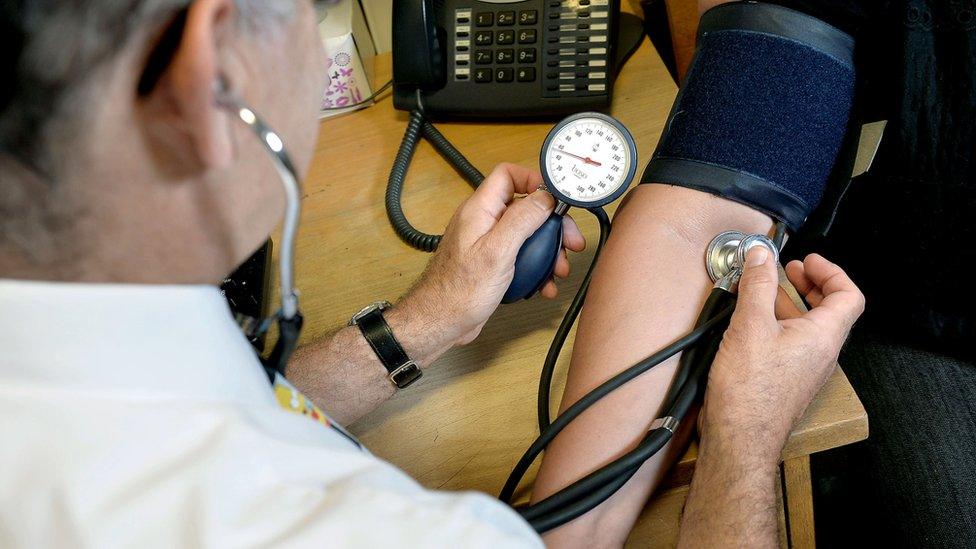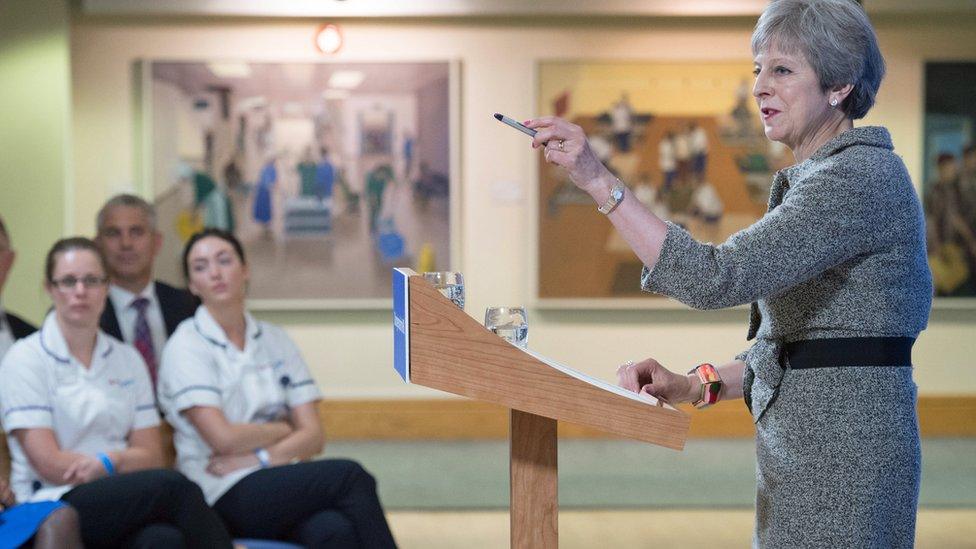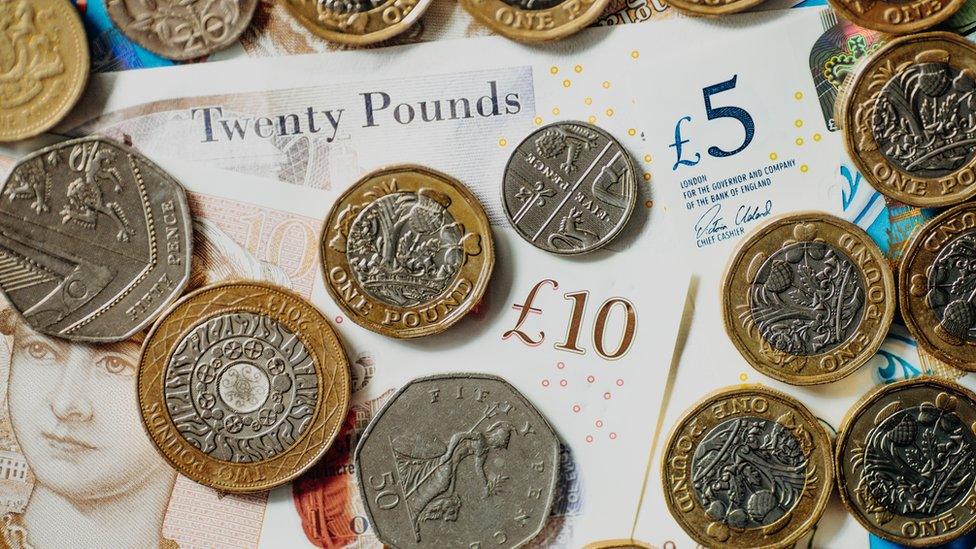Tax rise needed to fund NHS spending boost, says watchdog
- Published

The government must raise taxes or cut spending to fund Theresa May's planned increase in NHS funding or risk putting the country's finances under pressure, the UK's fiscal watchdog has warned.
The Office for Budget Responsibility said the long-term outlook for public finances was now "less favourable".
It questioned a plan to partly fund the NHS boost through a "Brexit dividend".
It said Brexit "is more likely to weaken the public finances than strengthen them".
The OBR said: "On current policy we would expect the budget deficit to widen significantly over the long term, putting public sector net debt on a rising trajectory as a share of national income.
"This would not be sustainable."
OBR chairman Robert Chote told the BBC: "If the government didn't announce any tax increases or cuts in other spending to help pay for this health announcement, you would see the pressure on the public finances mounting over the years to come."
In its latest Fiscal Sustainability Report, external, the OBR said the change in the outlook for public finances "is more than explained by the June health spending announcement".
Last month, the Prime Minister announced that the NHS in England would get an extra £20bn a year by 2023.
The £114bn budget will rise by an average of 3.4% annually.
The OBR said that without raising tax or cutting budgets, the measures would increase public spending "by significantly more than the modest fiscal tightening" from increasing the state pension age and changes to social care costs.
Mrs May said that the NHS increase would be funded partly by a "Brexit dividend".
However, the OBR said: "Our provisional analysis suggests that Brexit is more likely to weaken the public finances than strengthen them over the medium term, thanks to its likely effect on the economy and tax revenues."

Prime Minister Theresa May announced plans to increase NHS funding in June
It also questioned how much of the supposed Brexit dividend would end up going towards the extra commitment to the NHS in England.
The OBR estimates that the UK would have had to make a contribution of £13.3bn to the EU budget in 2022-23 if it remained a member.
It said of that potential saving, £7.5bn would be absorbed by the withdrawal settlement payment expected for that year, "leaving £5.8bn to be spent on other things".
The OBR said that, in principle, it would cover slightly less than 30% of the cost of health package in that year.
"This does not take into account other calls on these potential savings, including commitments the government has already made on farm support, structural funds, science and access to regulatory bodies," it added.
"Pending a detailed withdrawal agreement and associated spending decisions, we assume in this report that the extra health spending adds to total spending and borrowing rather than being absorbed in whole or part elsewhere."
Spending priorities
In its response, the Treasury, external reiterated Mrs May's promise that the NHS boost "will be partly funded by lower contributions due to the European Union".
"In addition, she has made clear that taxpayers will need to contribute a bit more in a fair and balanced way. This will also require prioritisation and further efficiencies within non-health expenditure to keep the growth in total spending on a sustainable long-run trajectory," it said.
The OBR said: "The main lesson of our analysis is that future governments are likely to have to undertake some additional tightening beyond the fiscal plans in place for the next five years in order to address the fiscal costs of an ageing population and upward pressures on health spending.
"Leaving all or part of the June 2018 health spending announcement unfunded would simply require greater action later."
- Published20 June 2018

- Published17 June 2018
